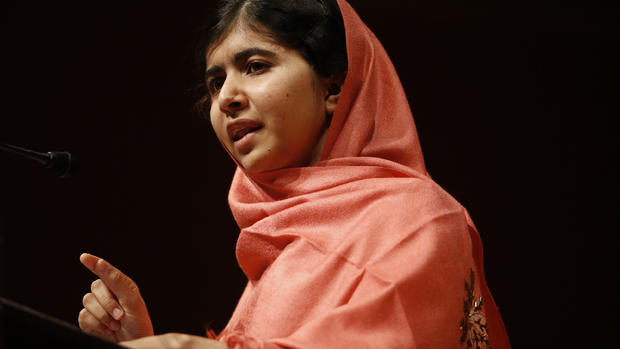Pakistani Taliban chooses Malala assassination plotter as new leader
Mullah Fazlullah has just been chosen as the new leader of the Tehreek-i-Taliban, the Pakistani Taliban Movement following the death of Hakimullah Mehsud, the previous leader, who, with a $5 million bounty on this head, was killed last week in a U.S. drone strike.
The news of Fazlullah's ascendance was confirmed by the head of the Taliban's leadership council, Asmatullah Shaheen Bhitani, according to the Associated Press.
Fazlullah, about 39 -- no mountain Pashtun knows his real age -- rose to fame in 2006 when he created a clandestine radio station, which earned him the name "Mullah Radio" in the Swat Valley. Fazlullah used the beautiful mountainous region, the "Switzerland of Pakistan" north of Islamabad, to call for a return to Sharia, or Islamic law, and for all girls' schools to close. Fazlullah's religious education has given him status among the Taliban, most of whom have little formal education.
In 2009, the Pakistani army entered the Swat Valley to evict the Taliban from the area. After fierce fighting, which left many homes destroyed and looted, the army established a wary, uneasy peace. Fazlullah moved through the mountains and across the border to Kunar province, in northeast Afghanistan, from where he has moved back and forth since then, mounting operations in Pakistan, and possibly Afghanistan.
In 2012, he ordered the assassination of Malala Yousafzai, then a 14-year-old school girl, for writing and speaking out against his orders to close girls' schools. She was shot in the head, but survived and has gone on to become a world figure, a symbol of defiance, like her namesake, Malala of Mirwan, a teenage girl who raised a homemade flag in the 19th century in Kandahar, urging her fellow Pashtun tribesmen to stand strong against the invading British army. She was killed, but every child in Pashtun Afghanistan and Pakistan knows the story of Malala, as they do the story of her modern-day namesake.
Fazlullah, not giving in, wrote an open letter threatening her again, as well as her father for courageously continuing to speak out against the Taliban.
Fazlullah has appeared on YouTube extolling the Taliban to fight. Unlike al Qaeda and previous Taliban leaders, who always have an AK-47 next to them, Fazlullah has been seen with a U.S. M-4 rifle, signifying that the weapon had perhaps come from a dead American soldier.
It is too early to tell if Fazlullah will last as leader of the Pakistani Taliban. He is audacious enough: setting up a radio station; keeping ahead of the U.S. Army in Afghanistan and the Pakistani army in Pakistan; continuing, against all world opinion, to call for the death of a global icon, Malala. But he is, according to all reports, not a Mehsud. The Taliban, who call for Sharia and want to create an egalitarian society based upon God's law, as they see it, are opposed to traditional Pashtun tribal law. They want to create a new world, not unlike that which Mohammed is said to have created in Medina 1,500 years ago.
But they cannot operate outside of their tribal structure. All Taliban leaders, including Mullah Omar, head of the Afghan Taliban, and Jalaladin Haqqani, head of the lethal Haqqani Network, live and operate within their tribal regions. All Taliban need food to eat and places to sleep and, most importantly, protection and access to a reservoir of young fighters to replace those killed in battle. They can only get this from their own tribes.
On Thursday, a senior Western diplomat in Islamabad who spoke to CBS News on condition of anonymity said Fazlullah's nomination had set the pace for a period of growing hostility between the Taliban and Pakistani authorities.
He warned that Fazlullah will likely keep the Taliban movement away from peace negotiations with the government of Prime Minister Nawaz Sharif, following a recent offer.
"Fazlullah has a terrible history of taking a harsh view on [relations with the government in] Islamabad," he said. "Under Fazlullah, the danger is that the Taliban will take a very hard line."
CBS News' Farhan Bokhari contributed to this report
